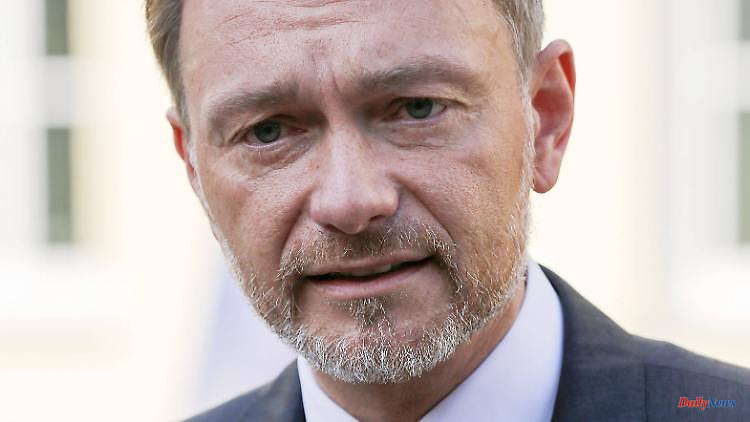One could also do without an amendment to the Basic Law and decide on the special assets of the Bundeswehr with a simple majority, suggests the head of the SPD parliamentary group, Mützenich. Finance Minister Lindner reacts and immediately wipes the idea off the table.
Finance Minister Christian Lindner continues to insist on an amendment to the Basic Law for the planned billion-euro financial injection for the Bundeswehr. He thus rejected a move by SPD parliamentary group leader Rolf Mützenich, who had spoken of alternatives such as suspending the debt brake. "It is not an option for the Bundeswehr to circumvent the debt brake with a simple majority," said Lindner. He specifically proposed a special fund in the Basic Law so that the character of the debt brake itself remains intact. "A softening would be constitutionally questionable and politically impossible to do with the FDP," emphasized the party leader.
Mützenich had told the "Frankfurter Allgemeine Zeitung" that if the Union did not agree to an amendment to the Basic Law, there were other ways for the planned 100 billion euro program. "If Germany is in an emergency situation, Article 115 allows borrowing with a simple majority." Article 115 sets a credit limit for the federal budget. An exception was recently approved because of the Corona crisis.
Lindner emphasized that declaring an emergency for the Bundeswehr again and suspending the debt brake would reduce the meaning of the rule ad absurdum, “although we have to strengthen it permanently in times of inflation”. Furthermore, no way should be opened up for the Union to shirk its responsibilities. "The condition of the Bundeswehr after 16 years of Union-led government speaks volumes," he said.
Meanwhile, in the struggle over the planned special fund for the Bundeswehr, the Union is ready to flexibly manage the target of two percent defense spending without giving it up. Union parliamentary group leader Mathias Middelberg told ARD: "We don't have a slavish idea, it has to be two percent every year." This magnitude must be achieved roughly and over a period of several years, "so what NATO also describes in terms of content with NATO capability goals, that must be achieved in the long term," said the CDU politician.
At the same time, Middelberg rejected the threat of Mützenich to decide on the better equipment of the Bundeswehr even without the Union. "It's a threat that I don't take seriously," said Middelberg. "Firstly because it is extremely difficult from a legal point of view. And I also believe that it would not be the wise signal politically. The Chancellor (Olaf Scholz, SPD) has given two wise goals and we should now implement them together." He was referring to the announcement that the Bundeswehr, with its technology that can only be used to a limited extent, would be provided with an additional 100 billion euros in a special fund and then invest the two percent of gross domestic product in defense in the future.
The Federal Government wants to strengthen the Bundeswehr with the special program of 100 billion euros and thus close equipment gaps. The special fund is to be anchored in the Basic Law, which requires a two-thirds majority in the Bundestag and Bundesrat - so the CDU/CSU opposition must be brought on board. However, the Union has set conditions for approval. What is controversial is exactly what the money should be spent on.
6












